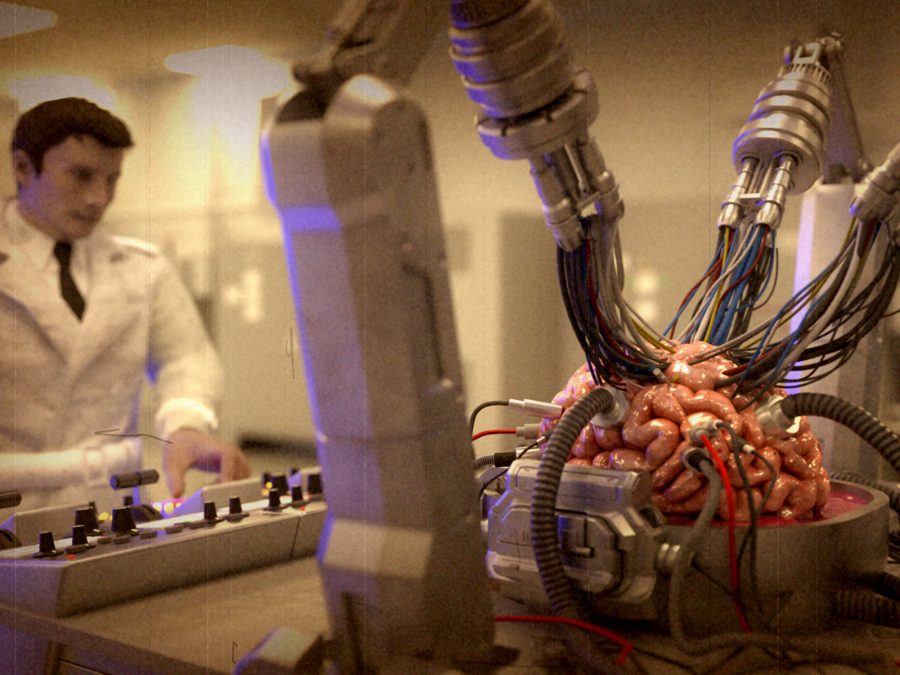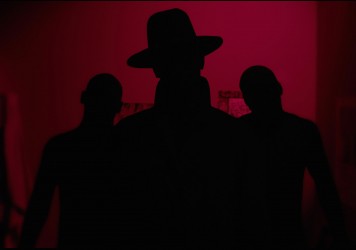Crackpot conspiracy or disturbing reality? Director Rodney Ascher investigates the murky world of simulation theory.
Imagine you’re at a dinner party, everyone is finishing up and the port wine and cigars are brought out. Someone pipes up with the question, “Do any of you believe we’re living in a computer simulation, a little like the one proposed in the 1997 film The Matrix?” Rodney Ascher’s wayward and fitfully provocative documentary-essay hybrid A Glitch in the Matrix is pretty much a simulation of that conversation, with some sharp, valid, thought-sparking observations tossed across the table, but also a fair amount of incoherent waffle.
What with this subject matter – by its very nature – being so conceptually sprawling, the film lacks for a clear intellectual throughline, instead jumping through various subchapters which cover various rationales articulated by the believers. Or, as they are credited here, the “eyewitnesses”. This set of subjects are presented on screen as ugly digital avatars, though it’s never certain whether that’s due to an insider joke, an attempt to protect their identity, or just a wacky aesthetic touch to make the film feel more fun. They all have ill-defined, nebulous professional backgrounds, but all are happy to draw on vivid personal experiences while detailing the evolution of their own theories regarding life as a collective simulation.
The problem with the eyewitness testimony is that it all comes across like conspiracy theory claptrap, or dorm room postulation powered by soft drugs. It’s all highly subjective and unscientific, with entire alternative philosophies backed up with claims such as, “I thought of an orange fish and then I turned a corner and there was a sign with an orange fish!” There’s a sense that these men (no women) are attempting to sell you something so that they might be able to feather their entrepreneurial nest.

Thankfully, Ascher draws on testimony from experts who are observing this phenomenon from the outside, and contributions by journalist Emily Pothast and novelist Jonathan Letham actually help to build convincing connections between theory and a more objective reality. Letham himself contributed to a project in which he and various colleagues truncated an 8,000 page Phillip K Dick “exegesis” of personal thoughts about simulations, dystopias and dream life, and as we see in footage of an extremely bizarre public lecture/confessional from 1977, Dick himself didn’t necessarily see his work as being couched in fantasy.
As with his 2012 film Room 237, which collected together eccentric readings of Stanley Kubrick’s The Shining, A Glitch in the Matrix uses this subject matter as a trojan horse to discuss the genetic make-up of modern conspiracy theories and the folly of human suggestibility. In the film’s second half, the focus shifts to the case of Joshua Cooke whose love of The Matrix and its teachings led him at first to walk around shopping malls in a black trench coat and shades, then later intone the dialogue into empty telephones and, finally, murder his parents with a shotgun in a gruesome manner that aped the film’s main character, Neo.
After initial talk of nostalgia and dreams and the sense that simulation technology is really “cool” (a very strange episode about the profundity of Minecraft really tests the patience), we finally arrive at the cold reality of the situation and how these beliefs are essentially incompatible with basic civic morality. It’s certainly a subject worthy of discussion, and every dud hypothesis is countered by one that is genuinely stimulating. Yet speculation around this subject has been broached on screen before – and with superior results – by directors such as Richard Linklater (2001’s Waking Life) and Chris Marker (1997’s Level 5).
Published 2 Feb 2021
Director Rodney Ascher gets a lifetime pass for Room 237.
Mixed results. For every mind-bending truthbomb, there’s a turgid crackpot theory to trawl through.
Doesn’t really convince that these existential questions are of any pressing concern right now (even if they are).

The documentary maker on the deep existential concerns at the heart of his latest project.

The horrors of sleep paralysis are explored in a playful and provocative manner by director Rodney Ascher.

By Al Horner
The Wachowskis’ 1999 action sci-fi changed blockbuster cinema, altering its code forever.